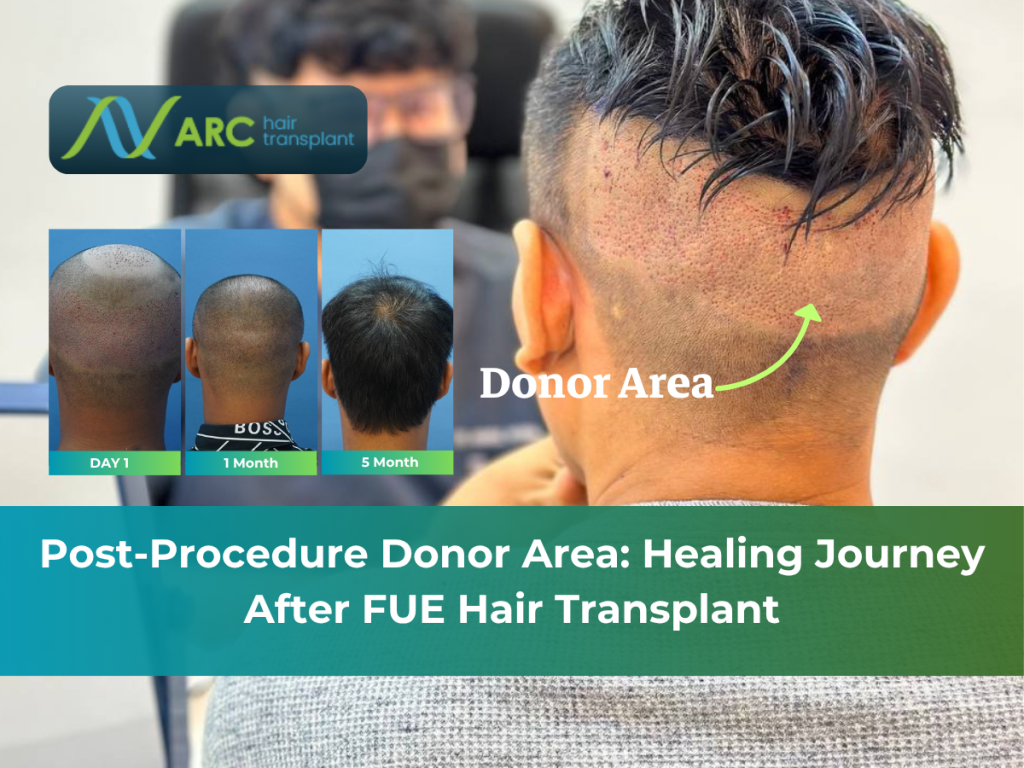Post-Procedure Donor Area: Healing Journey After FUE Hair Transplant

Follicular Unit Extraction (FUE) is one of the most popular and advanced methods of hair transplantation today. One of the key advantages of FUE is the minimal scarring and relatively fast recovery of the donor area. In this post, we’ll take a closer look at the healing process of the donor area after an FUE hair transplant—documented across three stages: Day 1, Month 1, and Month 5.
Post-Procedure Donor Area on Day 1: What to Expect Immediately After Surgery
Right after the procedure, the donor area displays pinpoint marks, redness, and mild swelling. These are typical signs of the extraction process and begin to subside within a couple of days.
Key Observations:
Red dots and tiny scabs
Slight swelling or soreness
Clean extraction pattern is visible
Care Tips:
Avoid touching or scratching
Follow post-op hygiene instructions strictly
Use a soft pillow and keep the head elevated
Post-Procedure Donor Area After 1 Month: Visible Healing and Hair Regrowth
By one month, the scalp shows remarkable recovery. Most of the scabs are gone, and early signs of hair regrowth can be seen. There may still be mild patchiness, which is completely normal.
Key Observations:
Light hair regrowth begins
Scalp texture returns to normal
Any residual redness gradually fades
Care Tips:
Continue using gentle shampoo
Avoid UV exposure and wear a hat outdoors
Keep scalp moisturized if dry
Post-Procedure Donor Area at 5 Months: Full Recovery and Natural Appearance
At five months, the donor area appears fully healed with no noticeable signs of extraction. The hair blends in naturally, and scarring is virtually undetectable unless under magnification.
Key Observations:
Healthy, dense hair regrowth
Even scalp tone and texture
Scar-free appearance for most patients
Care Tips:
Resume your usual hair care routine
Maintain scalp health through proper diet and hydration
Attend follow-up appointments if required
Final Thoughts
Healing in the post-procedure donor area is a step-by-step journey that rewards patience and proper aftercare. From initial redness to full regrowth, the process typically completes within 5–6 months, leaving behind little to no evidence of the procedure.
Whether you’re planning a hair transplant or recovering from one, understanding these stages helps set realistic expectations and encourages consistent care.








